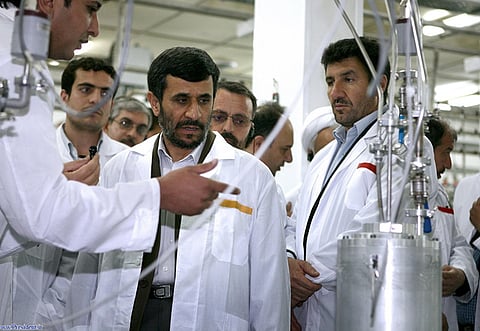UN must be the final arbiter on Iran
Any action taken against the country should be agreed upon by the world body

Iran has built up a deliberate wall of mistrust over what it says is its peaceful nuclear power programme. Despite Mahmoud Ahmadinejad's government sticking to the letter of the Nuclear Non-Proliferation Treaty for years, and the International Atomic Energy Agency (IAEA) repeatedly agreeing that what it has seen is above board, Iran has refused to disprove allegations that it has a nuclear weapons programme.
The original allegations were made based on a variety of documents from various intelligence sources, which did not have any direct proof of such a programme. Iran's refusal to answer the allegations simply reinforces the suspicion that it has something to hide. This is why the international community has reacted so strongly to the announcement that Iran will start enriching uranium to 20 per cent, as required by its research reactor for medical isotopes. For Iran to advance from its current 3.5 per cent enrichment to 20 per cent might take a year, but further enrichment to 90 per cent, required to produce a nuclear bomb, would then only take another six months.
This is why sanctions are back in favour. France and the US have called for a new fourth round of sanctions, and Britain has called Iran's new enrichment plans deeply worrying. The IAEA brokered a deal in October for Iran to send its uranium to Russia and France for enrichment, but despite initial acceptance, this plan seems to be coming apart. As Iran moves into a confrontation with the international community, it is important that the process is directed through the United Nations, and that the IAEA takes the dominant position on defining the facts. Intelligence agencies with any allegations or discoveries should submit their findings to the IAEA, and not misuse them to encourage their governments to take premature or unilateral action.
Sign up for the Daily Briefing
Get the latest news and updates straight to your inbox



